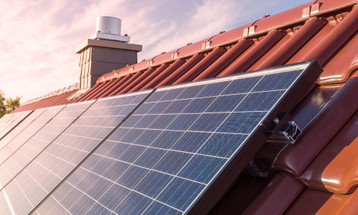Aug 14th 2023
Residential vs. Commercial Solar Systems: Key Considerations
Solar systems are broadly classified into two categories: residential and commercial. Below, we’ll explain the key considerations and differences between residential and commercial solar systems and discuss what you need to know regarding their size, installation, financing, and more.
Size
The most obvious difference between commercial and residential solar panels is their size. While some may think that commercial solar panels are bigger than residential ones because they need to extract more energy, it mostly comes down to roof size.
Commercial buildings often have larger, flat roofs ideal for panels and sunlight exposure throughout the day. A residential home is more constrained because the roof is smaller and at a pitched angle, which means residential panels get less sun exposure than flat, commercial panels.
Permitting
When discussing residential vs. commercial solar systems, a key consideration is the permitting and review process. Getting a residential solar system permit is relatively easy and typically only takes a few weeks. For commercial systems, the process can take twice as long, if not longer.
Commercial solar permits and reviews are thorough to ensure the commercial system plan has everything in order, from safe installation to accurate solar labels and more. If applying for a commercial or residential solar permit, you must provide complete and accurate information to avoid lengthy delays and reviews.
Installation
Installation is another significant distinction between residential and commercial solar panels. Again, roof size plays a critical role. Solar panels must be installed differently when attached to a pitched roof for residential systems versus a flat roof for most commercial applications.
And since commercial solar panels are typically larger and require many more technical and power considerations, the installation process is more intensive and time-consuming than most residential installations. Residential systems can be up and running in as little as one working day outside of the permitting process, while commercial projects will take more time.
Financing and Tax Credits
Those considering a residential or commercial solar system should study the available financing options and tax credits. Solar panels aren’t cheap, but the federal government does offer tax credits to ease the financial burden.
Residential homeowners with solar systems can apply for the federal tax credit, which applies a 30 percent tax credit for installation costs for solar systems installed between 2022–2032. Businesses also can earn a federal tax credit from the federal solar investment tax credit, which gives businesses a 30 percent credit toward solar system installation costs through 2035.
Whether getting a residential or commercial solar system, you’ll need quality and accurate labels and panel placards. Get Solar Labels can ensure your solar placards and labels are up to code and meet all regulations. Browse our inventory of labels online or contact our staff if you have any questions.

